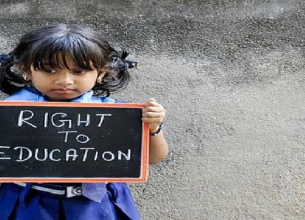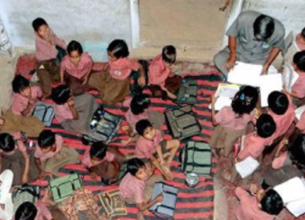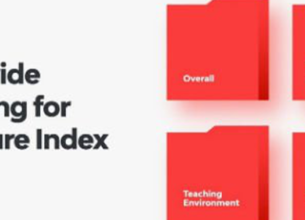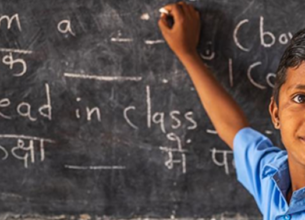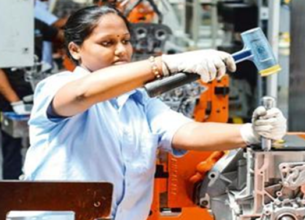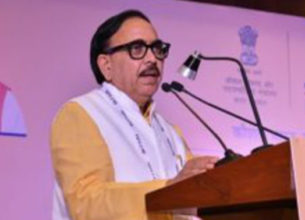EDUCATION & ASPIRING INDIA
04, Feb 2020
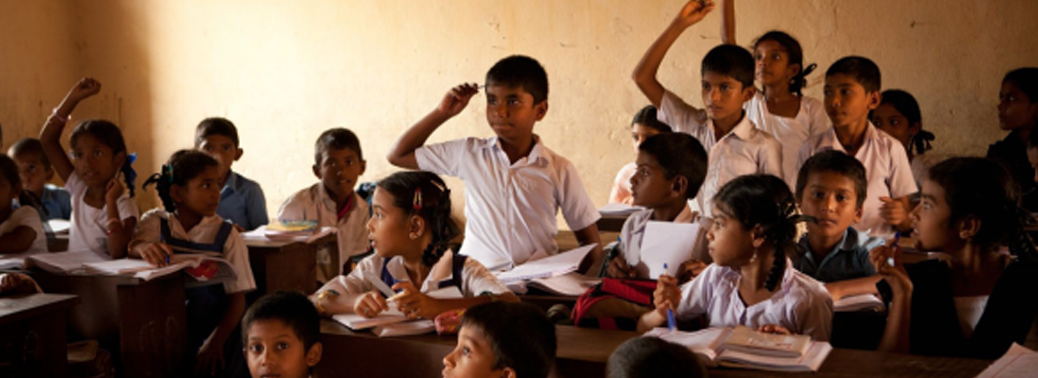
Prelims level : Miscellaneous
Mains level : GS-II Issues Relating to Development and Management of Social Sector or Services relating to Health, Education, Human Resources
Context:
- In the Union Budget 2020, Finance Minister Nirmala Sitharaman has suggested speedy implementation of the new education policy and several other measures. The budget earmarked Rs 99,300 crore for the education sector in 2020-21 and about Rs 3,000 crore for Skill Development.
Budget Highlights:
- About 150 higher educational institutions would start apprenticeship embedded degree/diploma courses by March 2021.
- A programme would be started whereby urban local bodies across the country would provide internship opportunities to fresh engineers for a period up to one year.
- To create infrastructure in the education sector, steps would be taken to enable sourcing External Commercial Borrowings and FDI so as to be able to deliver higher quality education.
- Institutions that are ranked within the top 100 in the National Institutional Ranking framework will start a degree level full-fledged online education programme for students of deprived section of the society.
Need for Skilling:
- The Education – Knowledge Gap:
1.Literacy rate in India as per Census 2011: 74%.
2.Literacy rate: Male: 82.1%; Female: 65.5%
- Annual Status of Education Report (ASER) reflects the deteriorating quality of knowledge from education.
- The report opines that deficits in foundational reading and arithmetic skills are cumulative, which leaves students grossly handicapped for further education.
The Knowledge – Skill Gap:
- By 2030, the country will have the highest working age population. Youths coming out of the higher education system in India are not employable, as they lack relevant industry-level skills.
- The Governments are tasked with the responsibility of empowering the present day children to make them employable by 2030.
- In this regard, the Union Budget 2020-21 has earmarked about Rs 3,000 crore for Skill Development.
The Issues in Skilling:
- Skilling can be done with primary education as a base, however, in India these domains are seen separate from one another. No skill development program can succeed without an underlying foundation of basic education.
- There is a growing gap between skilling and knowledge, which increases inequality.
- Skilling requires infrastructure boost to support the increasing number of entrants.
- Less than 5% of the workforce in the age-group of 19-24 receives vocational education in India, in contrast to 52% in the USA, 75% in Germany and 96% in South Korea.
Way Forward:
- Secondary education and skilling should go together.
- Skilling framework should be improved
- Higher Education Institutions must offer vocational courses that are integrated into Undergraduate Education Programs.
Issues in Teacher Education:
- Teachers play a most critical role in a student’s development. There is a need for better incentives for teachers, investments in teacher capacity through stronger training programs and addressing the problems in the teaching-learning process. However,there is a decline in the quality and training of teachers.
- Disproportionate Student and teacher ratio in both public and private institutions.
- Challenges in governance and monitoring mechanisms for tracking performance of the teachers.
- Lack of accountability systems in Government Schools.
- Inadequate teacher training, large number of teaching vacancies and rampant absenteeism.
- Limited options for teacher education in the school system.
Way Forward:
- Fraudulent or dysfunctional teacher education institutions should be closed as soon as possible.
- In-service teacher professional development programs should be redesigned with continuous progressive development such as peer-learning, demonstration classes, sabbaticals for research/advanced studies etc.
- A national electronic teacher registry should be setup to bring together employers and job aspirants in this sector.
- States should test teachers tri-annually on the same test designed for the children they are teaching which will ensure competency of the teacher.
- The Teacher Eligibility Test (TET) across states should be strengthened as per central TET through standardization of results, quality benchmarking of testing-items and extending the TET for teachers at pre-school and classes at 9-12 levels.




